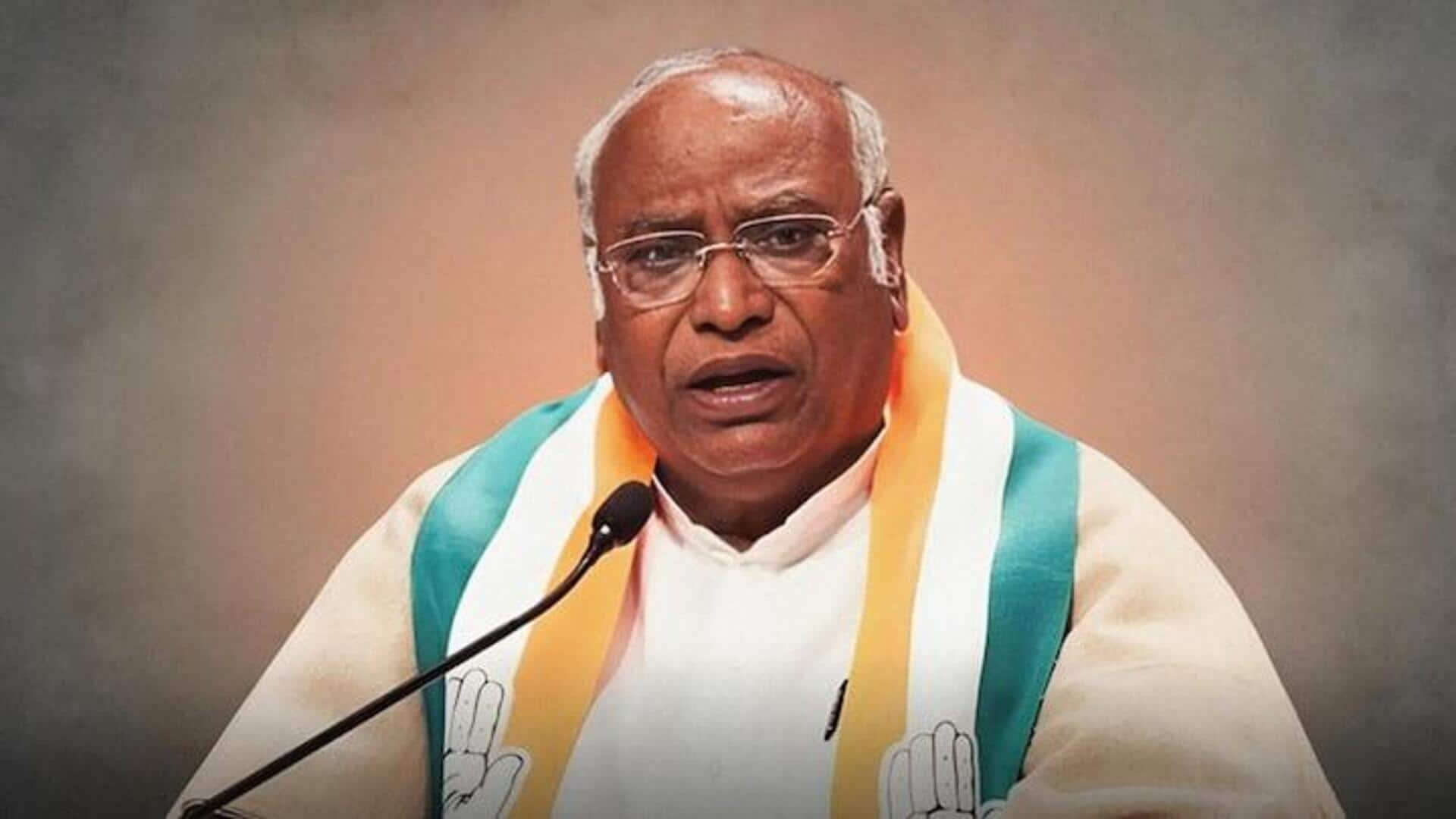
Congress will increase manufacturing share in GDP to 20%: Kharge
What's the story
Mallikarjun Kharge, the president of the Indian National Congress, has committed to transforming India into a manufacturing powerhouse.
In an official statement on his X handle, Kharge pledged to increase the manufacturing sector's contribution to India's GDP from 14% to 20% within five years.
He claimed that under Congress rule, the nation's manufacturing share of GDP was higher than under the Bharatiya Janata Party (BJP) rule.
Criticism
Kharge criticizes stagnation of manufacturing under BJP rule
Kharge also criticized the current government, stating that the manufacturing sector's share of GDP has remained stagnant at 14% over the last decade (2014-24).
He asserted, "Congress is determined to make India the manufacturing powerhouse that produces goods and services for itself and the world."
The Congress leader said the party's immediate goal is to foster a healthy, fearless, and trustworthy business environment.
Reform
Kharge promises review of regulatory regime
Kharge further highlighted that his party abolished industrial licensing and controls in 1991, but noted that the current regulatory system has devolved into overt and covert controls.
To rectify this, he pledged a comprehensive review of existing rules and regulations to restore freedom to industry, business, and trade.
He outlined ambitious goals for India's leadership in various industries including steel, garments and textiles, cement, automobiles, electronic goods, pharmaceuticals, engineering goods, petroleum products, chemicals and mining rare earth and critical minerals.
Revival
Congress to revive stalled projects, proposes reforms
Citing Reserve Bank of India (RBI) data, Kharge stated that nearly 60% of large central government projects have been delayed or stalled, with costs escalating by nearly five lakh crores.
He declared, "Congress will address the problem in a mission mode and find ways and means to revive the stalled projects with the help of the private sector."
Additionally, he proposed reforms to the production linked incentives (PLI) scheme to target sectors that can generate thousands of jobs.